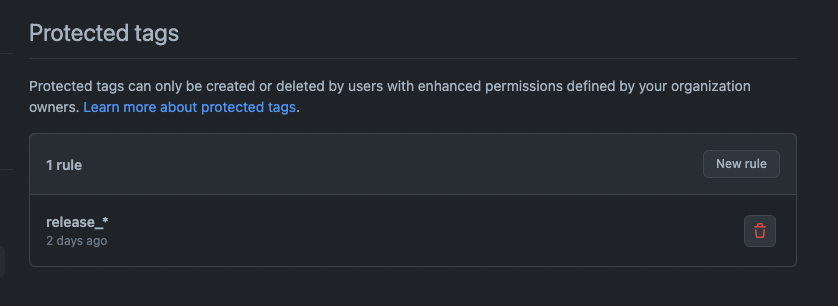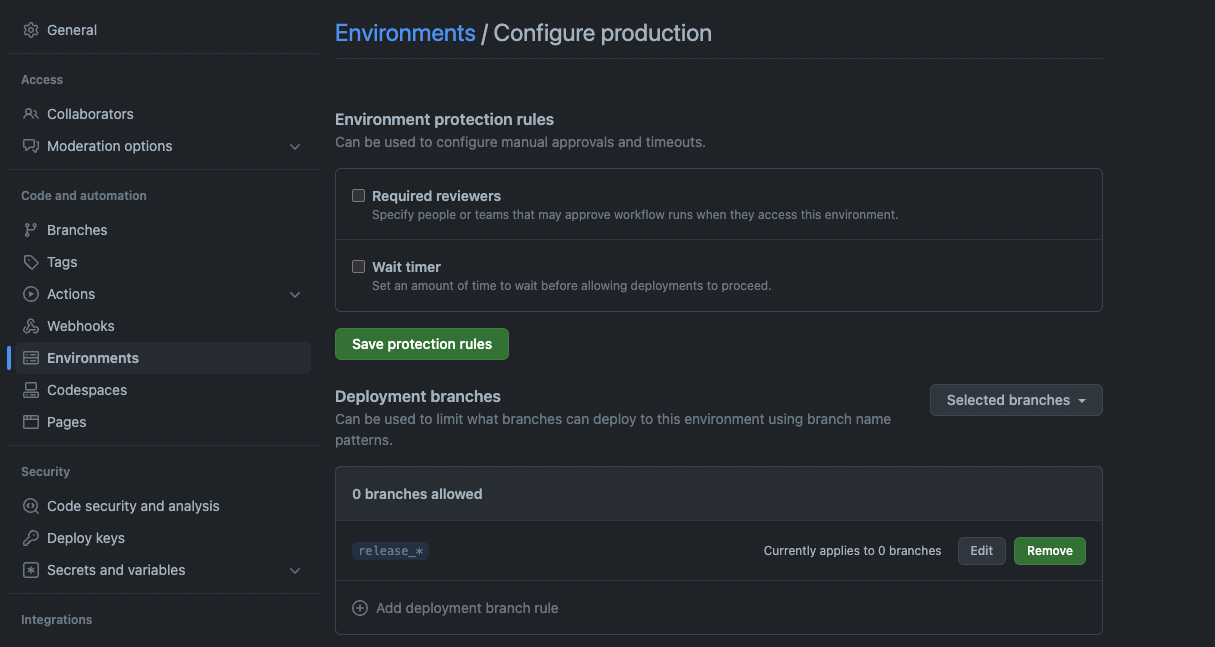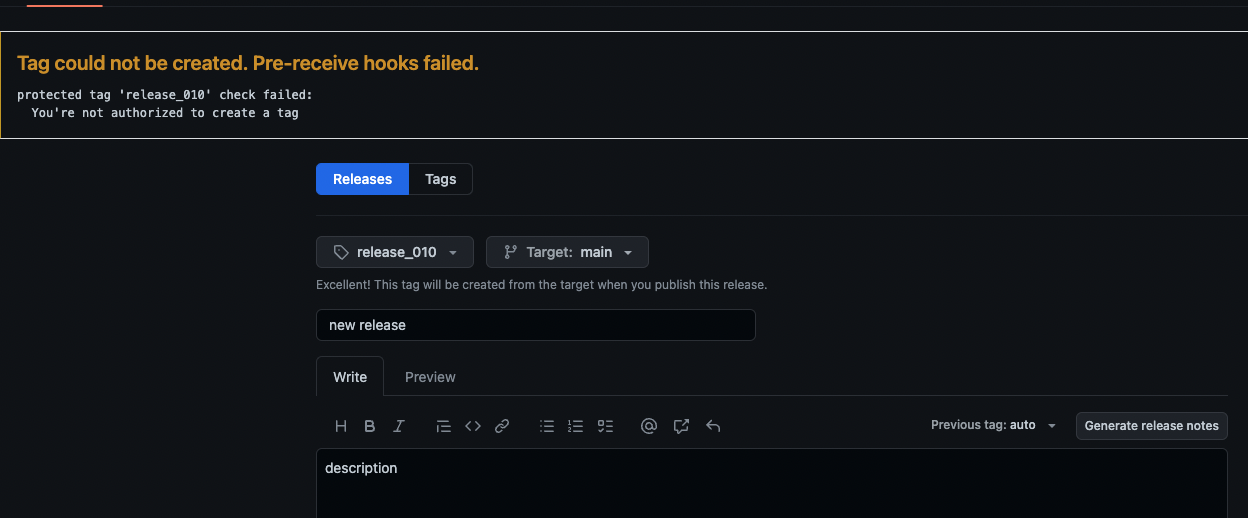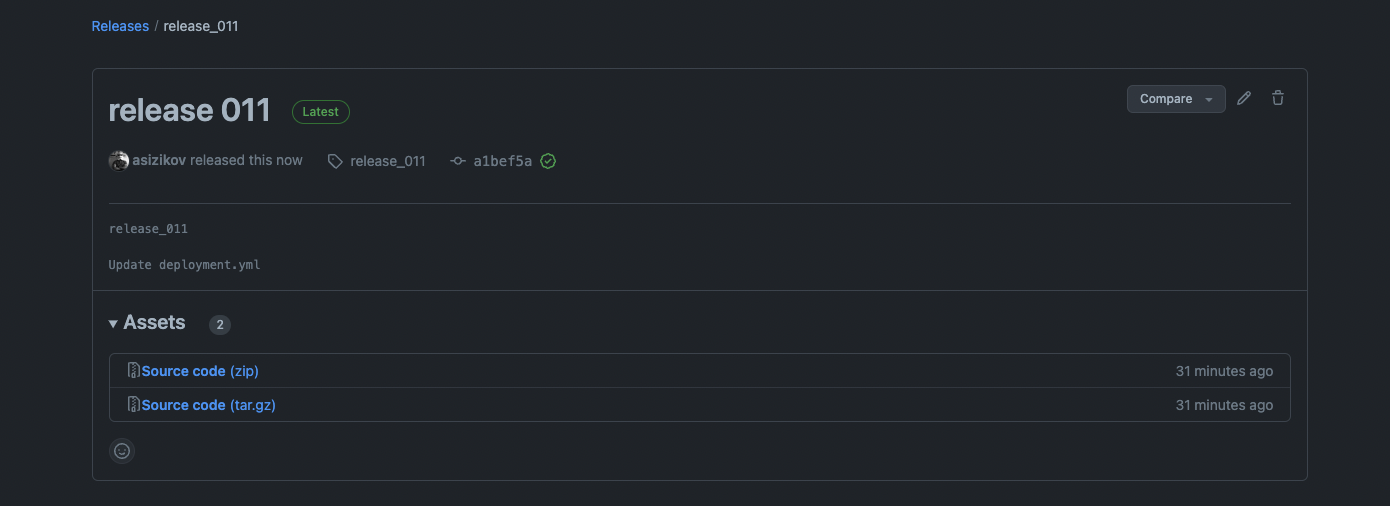TABLE OF CONTENT
A recent request from a customer caught my attention. They were trying to set up a CD pipeline that should deploy packages to production when there is a new tag pushed to the repository. At the same time, they wanted some control over the process so that not everyone can init a release by pushing a tag to the repository.
In a more standard scenario, you would use a branch protection rule to prevent pushing to main branch, together with environment protection rule that prevents deployments to production from any other branch but main. However, in this case, they are using tags to trigger the deployment. So, we need to protect the tags. Currently, it’s not obvious that you can restring environments to specific tags or tag patterns. Let’s see how we can do that.
Protecting tags #
The first thing we need to do is to create a new tag protection rule. The rule should look like this:

The rule is pretty simple. It only allows the users with admin or maintain permissions in the repository to be able to create tags. This is exactly what we need.
Protecting environments #
Now, we need to set up new environment protection rule. We will call it production. The rule should look like this:

Note that I’m using the tag name pattern to match the tags that should be deployed to production, despite the UI saying “branches”. The pattern is release_* This means that any tag that starts with release_ is allowed to be deployed to production.
Deployment workflow #
And finally, I’m creating a simple workflow that will deploy the package to production when a new tag is pushed to the repository. The workflow looks like this:

Protection rules in action #
Let’s see what it looks like when an unprivileged collaborator tries to push a tag to the repository.

Also, an unprivileged collaborator cannot create a new release with protected tag.

So far so good. Now let’s see what happens when maintainer pushes a tag to the repository.

And the workflow is triggered and completed successfully.

The same applies to creating a new release with a protected tag.

Option #
Another option is to trigger the workflow on a new release:
# trigger workflow on release with tag name pattern
name: ⚙️ deployment on release created
on:
release:
types: [published]
jobs:
deployment:
if: github.event.release.tag_name == 'release_*'
runs-on: ubuntu-latest
environment: production
steps:
- name: ▶️ Run a one-line script
run: echo 'deployment to production'
This will trigger the workflow when a new release is created with a tag that matches the pattern. The downside is that you need to create a new release every time you want to deploy to production. Also, you may need to add extra scripting to the workflow to make sure that the tag is created in main branch.
git branch --contains tags/release_011
Conclusion #
Would I recommend using this approach? I would say it depends on your use case. The problem with it is that you cannot easily prevent users from tagging a commit that is not in the main branch, the same applies to releases, the UI allows you to pick any branch.
When your situation doesn’t allow you to deploy on every commit/merge to main branch you may want to consider other branching strategies, like GitFlow, where you have a dedicated branch for releases. In this case, you can use branch protection rules to prevent pushing to main and release branches.
Useful links #
Disclosure #
I’m employed by GitHub at the time of writing this post. All opinions are my own.